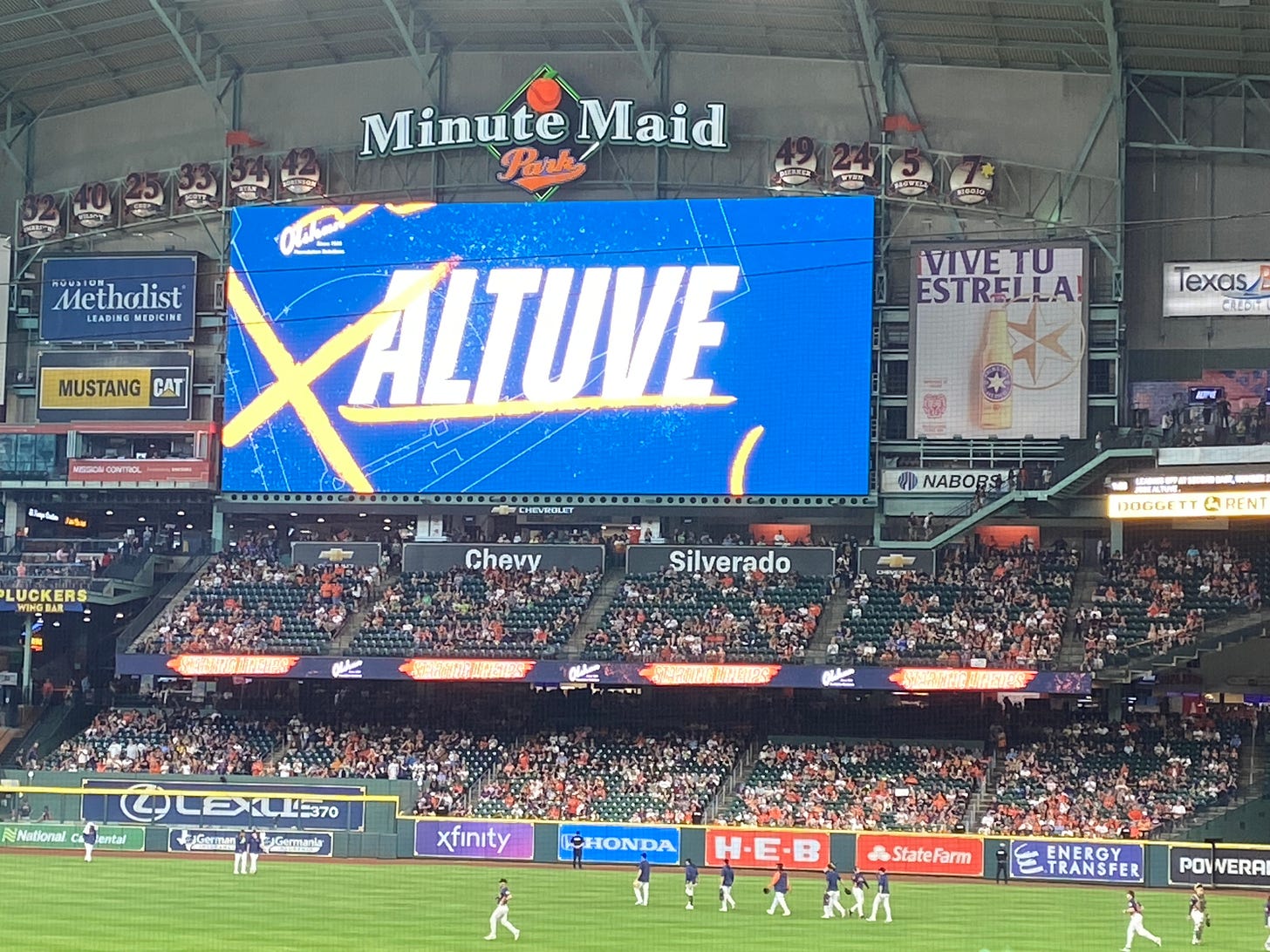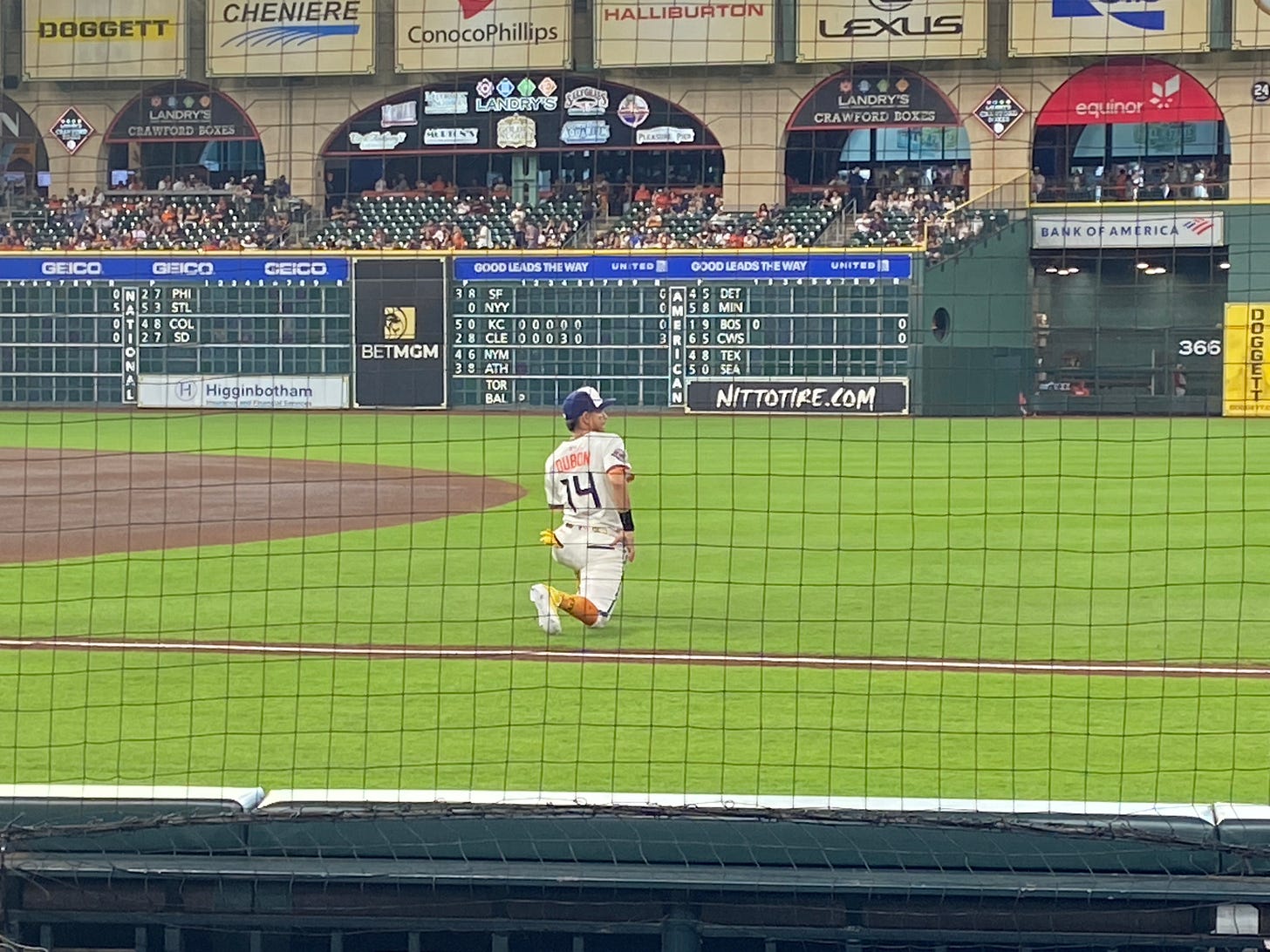Final 2025 Win Shares
Assigning the 87 Astros Wins
Below are the final Win Shares numbers for the 2025 Astros, who finished with 87 wins.
It’s a simple formula, because WAR doesn’t purport to track Wins Above Replacement, but is just a formula that spits out a number that happens to be named WAR, perhaps because it sounds cool.
My methodology is simple: Add all the fWAR accumulated by Astros (38.8) and divide that by the number of wins (87) and the result is .446.
As a team, the Astros earned .446 fWAR per win.
Next, take a player’s fWAR (we’ll use Jeremy Pena’s 5.7 in this example) and divide it by the fWAR per win (5.7/.446) and you get 12.8 Win Shares earned by Pena.
Do the same for every player and the total will be 87 wins.
In effect, I am assigning wins to players, which, at least for me, is easier to understand than “fWAR”.
*Note: Position players who pitched are listed twice, once as a pitcher and once as a hitter. The “P” next to their name denotes their fWAR/Win Shares as a pitcher.
In essence, I’m saying Pena was worth 12.8 wins this season, Hunter Brown 10.3, Framber 9.0, and so on.
In some ways, it’s redundant - the leader in fWAR will lead in Win Shares, and for that matter, the entire list will be in the same order.
But, for me, it’s easier to understand that the Astros will have to replace 9.0 Win Shares than 4.0 fWAR when Framber signs elsewhere.
The other thing is that the denominator changes each year. 5.7 fWAR may not mean the same number of Win Shares next year or last year - it’s unique to a year AND a team.
The fWAR per win is different for each team, meaning Pena’s 5.7 fWAR would mean more or fewer Win Shares depending on which team he was on.
For example, the Yankees had 50.5 fWAR for 94 wins, giving us .537 fWAR per win, meaning Pena’s 5.7 fWAR would equal 10.6 Win Shares if he was on the 2025 Yankees.
Intuitively, this makes sense to me. The Yankees had more wins, but they also accumulated more fWAR, i.e., more players contributing at an above-average level would reduce the amount of Win Shares for a guy with 5.7 fWAR.
Fans have been arguing about a given player’s contribution forever, and it’s part of baseball fandom that I hope never goes away.
Attempting to quantify that contribution is difficult and even my number is lacking because all versions of WAR are flawed and my number is only as good as fWAR.
Telling me that Jason Alexander’s contribution added 0.5 fWAR and 1.1 wins doesn’t compute in my brain, since the Astros were 10-3 in Alexander starts.
Similarly, it’s difficult to believe that Mauricio Dubon, with an 80 wRC+ and as good defensively as he was, contributed more than Jose Altuve, despite Altuve’s 156 hits, 26 home runs, 77 RBI and 113 wRC+ (despite his admittedly poor defense).
There are positives. Win Shares shows the value of Isaac Paredes and what Carlos Correa did in his two months with Houston.
In the end, it’s a tool to measure players’ contributions to a team and while it’s not perfect, it’s better than nothing.
One of my offseason projects is to do this for the entire league. We’ll see if that happens.
As always, thanks for reading.




